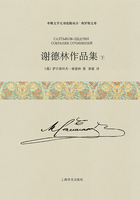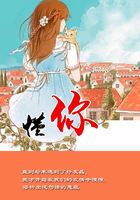“Tess, ”he added, with a sigh of disconten t, —“yours was the very worst case I ever was concerned in!l had no idea of w hat had resulted till y ou told me.Scamp that I was to foul that innocent life!The whole blame was mine—the whole unconventional business of our time at Trantridgc.You, too, the real blood of which I am but the base imitation, what a blind y oung thing you were as to possibilities!I say in all earnestness that it is a shame for parents to bring up their girls in such dan gerous ignorance of the gins and nets that the wicked may set f or them, whether their motive be a goo d one or the result of ****** indifference.”
Tess still did no more than listen, throwing down one g lobular root and taking up an other with automatic regularity, the pensive con tour of the mere fieldwoman alone marking her.
“But it is not tha t I ca me to say, ”d'Urberville went on.“My circumstances are these.I have lost my mother since you were a t Trantridge, and the place is my own.But I intend to sell it, and devote myself to missionary work in Africa.A dev il of a poor hand I shall make at the trade, no dou bt.However, what 1 want to ask you is, will you put it in my power to do my duty—to make the only reparation 1 can make for the trick played you:that is, will you be my wife, and g o with me……I have alr eady obtained th is pr ecious document.It was my old mother's dying wish.”
He drew a piece of parchment from his pocket, with a slight fumbling of embarrassment.
“What is it?”said she.
“A marriage licence.”
“O no, sir—no!”she said quickly, starting back.
“You will not?Why is that?”
And as he asked the question a disappointment which was not entirely the disappointment of thw arted du ty crossed d'Urberville's face.It was
unmistakably a sy mptom that something of h is old passion for her had been revived; duty and desire ran hand-in-hand.
“Surely, ”he began again, in more impetuous tones, and then looked round at the labourer who turned the slicer.
Tess, too, felt that the argument could not be end ed there.Informing the man that a g entleman had come to s ee her, with whom she w ished to walk a little way, she moved off with d'Urberville across the zebra-striped field.When they reached the first newly-ploughed section he held out his hand to help her over it; but she stepped f orward on the summits of the earth-rolls as if she d id not see him.
“You will not marry m e, Tess, and make m e a selfrespe cting m an?”he repeated, as soon as they were over the furrows.
“1 cannot.”
“But why?”
“You know 1 have no affection for you.”
“But you would g et to feel that in time, p erhaps—as soon as you really could forgive me?”
“Never!”
“Why so positive?”
“I love somebody else.”
The words seemed to astonish him.
“You do?”he cried.“Somebody else?But has not a sense of what is morally right and proper any weight with you?”
“No, no, no—don't say that!”
“Anyhow, then, your love for this other man may be only a passing feeling which you will overcome—”
“No—no.”
“Yes, yes!Why not?”
“I cannot tell you.”
“You must in honour!”
“Well then……I have married him.”
“Ah!”he exclaimed; and he stopped dead and gazed at her.“I did not wish to tell—I did not mean to!”she pleaded.“It is a secret here, or at any rate but dimly known.So will y ou, please w ill you, keep from questioning me?You must remember that we are now strangers.”
“Strangers—are we?Strangers!”
For a moment a flash of his old irony marked his face; but he determinedly chastened it down.
“Is that man your husband?”he asked mechanically, denoting by a sign the labourer who turned the machine.
“That man!”she said proudly.“I should think not!”
“Who then?”
“Do not ask what I do not wish to tell!”she begged, and flashed her appeal to him from her upturned face and lash-shadowed eyes.
D'Urberville was disturbed.
“But l only asked for your sake!”he retorted hotly.“Angels of heaven!—God forgive me for such an expression—I came here, I swear, as I thought for your good.Tess—don't look at me so—I cannot stand your looks!There never were such eyes, surely, before Christianity or since!There—I won't lose my head; I dare not.I own that the sigh t of y ou has waked up my love for you, which, I b elieved, was extinguished with all such feelings.Bu t I thought that our marriage might be a sanctification for us both.‘The unbelieving husband is sanctified by the wife, and the unbelieving wife is sanctified by the husband, 'I said to myself.Bu t my plan is da shed fro m me; and I must be ar t he disappointment!”
He moodily reflected with his eyes on the ground.
“Married.Married……Well, that being so, ”he added, quite calmly, tearing the licen ce slowly into halves and putting them in his pocket; “that b eing prevented, I should like to do some good to you and your husband, whoever he may be.There are many questions that I am tempted to ask, but l will not do so, of course, in opposition to your wishes.Though, if I could know your husband, I might more easily benefit him and you.Is he on this farm?”
“No, ”she murmured.“He is far away.”
“Far away?From you?What sort of husband can he be?”
“O, do not speak against him!It was through you!He found out—”
“Ah, is it so……That's sad, Tess!”
“Yes, ”
“But to stay away from you—to leave you to work like this!”
“He does not leave me to work!”she cried, spr inging to the defence of the absent on e with all h er fervour.“He don't know it!I t is by m y own arrangement.”
“Then, does he write?”
“I—I cannot tell you.There are things which are private to ourselves.”
“Of course that means that he does not.You are a deserted wife, my fair Tess!”
In an impulse he turned suddenly to take her hand; the buff-glove was on it, and he seized only the rough leather fingers which d id not express the life or shape of those within.
“You must not—you must not!”she cried fearfully, slipping her hand from the glove as from a pocket, and leaving it in his grasp.“O, will you go away—for th e s ake of me and my hus band—go, in the name of y our own Christianity!”
“Yes, y es; I will, ”he sa id abrup tly, a nd thrus ting the glo ve b ack to h er turned to leave.Facing r ound, however, he said, “Tess, as God is my judge, I meant no humbug in taking your hand!”
A pattering of hoofs on the soil of the field, which they had not noticed in their pre-occupation, ceased close behind them; and a voice reached her ear:
“What the devil are you doing away from your work at this time o'day?”
Farmer Groby had espied the two figures fro m the distance, and hadinquisitively ridden across, to learn what was their busmess in his field.
“Don't speak like that to her!”said d'Urberville, his face blackening with something that was not Christianity.
“Indeed, Mister!And what mid Methodist pa'sons have to do with she?”
“Who is the fellow?”asked d'Urberville, turning to Tess.
She went close up to him.
“Go—I do beg you!”she said.
“What!And leave you to that tyrant?I can see in his face what a churl he is.”
“He won't hurt me.He's not in love with me.I can leave at Lady-Day.”
“Well, I have no right but to obey, I suppose.But—well, good-bye!”
Her defen der, who m s he dreaded more th an her assailant, hav ing reluctantly disappeared, the farm er continued his reprimand, which T ess took with the greatest coolness, that sort of attack being independent of ***.To have as a master this man of stone, who would have cuffed her if he had dared, was almost a re lief after her f ormer experiences.She s ilently walked back towar ds the su mmit of th e f ield that was the scene of he r lab our, so absorbed in the interview which had just taken place that she was hardly aware that the nose of Groby's horse almost touched her shoulders.
“If so be you make an agreement to work for me till Lady-Day, I'll see that you carry it out, ”he growled.“'Od rot th e women—now'tis one th ing, and then'tis another.But I'll put up with it no longer!”
Knowing very well that he did not harass the other women of the farm as hc harassed her out of sp ite for the flooring he h ad once received, she did for one moment picture what might have been the result if she had been fr ee to accept the offer just made her of be ing the monied Alec's wife.It would h ave lifted her completely out of subjecti on, not only to her pres ent oppress ive employer, but to a whole world who seemed to d espise her.“But no, no!”she said breathlessly; “I could not have married him now!He is so unpleasant to me.”
That very night she began an appealing letter to Clare, con cealing fro m him her hardships, and assuring him of her undying affection.Any one who had been in a position to read between the lines would have seen that at the back of her great lo ve was so me monstrous fear—almost a desperation—as to some secret contingencies which were not d isclosed.But again she d id not finish her effusion; he had asked Izz to go with him, and perhaps he did not care for her at all.She put the letter in her box, and wondered if it would ever reach Angel's hands.
After this her daily tasks were gone th rough heavily enough, and brough t on the day which was of great im port to agriculturists—the day of th eCandlemas Fair.It was at this fair that new engagements were entered into for the twelve months following the ens uing Lady-Day, and those of the f arming population who thought of chang ing their p laces duly attended at the county-town where th e fair was held.Nearly all the labourers on F lintcomb-Ash Farm intended flight, and early in the morning there was a general ex odus in the dir ection of the to wn, which lay at a d istance of fro m ten to a do zen miles over hilly country.Though Tess also meant to leave at the quarter-day she was one of the few who did not go to the fair, having a vagu ely-shaped hope that so mething would happen to render an other o utdoor engag ement unnecessary.
It was a peaceful February day, of wonderful softness for the time, and one would almost have thought that winter was over.She had h ardly finished her dinner when d'Urberville's figure darkened the window of the cottage wherein she was a lodger, which she had all to herself to-day.
Tess ju mped up, bu t h er visitor had knocked at the door, and she could hardly in reason run away.D'Urberville's knock, his walk up to the doo r, had some indescribable quality of dif ference from his air wh en she last saw h im.They seemed to be acts of which th e doer was asham ed.She thought that she would not open the door; but, as ther e was no se nse in that either, she ar ose, and having lifted the latch stepped back quickly.He cam e in, saw her, and flung himself down into a chair before speaking.
“Tess—I couldn't help it!”he began desperately, as he wip ed his heated face, which had also a superimposed flush of excitement.“I felt that I must call at least to ask how you are.I assure you I had not been thinking of you at all till I saw you that Sunday; now I cannot get rid of your image, try how I may!It is hard that a good woman should do harm to a bad man; yet so it is.If you would only pray for me, Tess!”
The suppressed discontent of his manner was almost pitiable, and yet Tess did not pity him.
“How can I pray for you, ”she said, “when I am forbidden to believe that the great Power who moves the world would alter His plans on my account?”
“You really think that?”
“Yes.I have been cured of the presumption of thinking otherwise.”
“Cured?By whom?”
“By my husband, if I must tell.”
“Ah—your husband—your husband!How strange it seem s!I remem ber you hinted someth ing of the sort the other day.What do y ou really believe in these matters, Tess?”he asked.“You seem to have no religion—perhaps owing to me.”
“But I have.Though I don't believe in anything supernatural.”
D'Urberville looked at her with misgiving.
“Then do you think that the line I take is all wrong?”
“A good deal of it.”
“H'm—and yet I've felt so sure about it, ”he said uneasily.
“I believe in the sp irit of the Ser mon on the Mount, and so did my dear husband……But I don't believe—”
Here she gave her negations.
“The fac t is, ”sa id d'Urbervil le d rily, “whatever y our dear husban d believed y ou accep t, an d whatever he rejected y ou reject, without the least inquiry or reasoning on your own part.That's just like you women.Your mind is enslaved to his.”
“Ah, because he knew e verything!”said she, with a triumphant simplicity of faith in Angel Clare that the most perfect man could hardly have des erved, much less her husband.
“Yes, but y ou should no t take n egative opinions wholesale from another person like that.A pretty fellow he must be to teach you such scepticism!”
“He never forced my judgment!He would never argue on the subject with me!But I looked at it in this way; what he be lieved, after inquiring deep into doctrines, was m uch more lik ely to be right than what I might believ e, who hadn't looked into doctrines at all.”
“What used he to say?He must have said something?”
She reflected; and with her acute memory for the letter of A ngel Clare's remarks, ev en when she did not comprehend their sp irit, she reca lled a merciless p olemical sy llogism that she had h eard hi m u se when, a s it occasionally happened, he indulged in a species of thinking aloud with her at his side.In deliv ering it she gav e also Clar e's accent and manner withreverential faithfulness.
“Say that ag ain, ”asked d'Urberville, who had listened with the greatest attention.
She repeated the ar gument, and d'Urberville tho ughtfully murmured the words after her.
“Anything else?”he presently asked.
“He said at another time something like this; ”and she gave another, which might possibly have b een paralleled in many a w ork of the pedigree ranging from the Dictionnaire Philosophique to Huxley's Es says.
“Ah—ha!How do you remember them?”
“I wanted to believe what he believed, though he didn't wish me to; and I managed to coax him to tell me a f ew of his th oughts.I can't sa y I qu ite understand that one; but I know it is right.”
“H'm.Fancy your being able to teach me what you don't know yourself!”
He fell into thought.
“And so I threw in my spiritual lot with his, ”she resumed.“I didn't wish it to be different.What's good enough for him is good enough for me.”
“Does he know that you are as big an infidel as he?”
“No—I never told him—if I am an infidel.”
“Well—you are better of f to-day than I am, Tess, after all!You don't believe that you ought to preach my doctrine, and, therefore, do no despite to your conscience in abstaining.I do believe I oug ht to preach it, but like the devils I believe and tremble, for I suddenly leave off preaching it, and give way to my passion for you.”
“How?”
“Why, ”he said aridly; “I have come all the way here to see you today!But I started fro m home to go to Cas terbridge Fair, where I hav e under taken to preach the Word from a waggon at haft-past two this af ternoon, and where all the brethren are expecting me this minute.Here's the announcement.”
He drew from his breast-pocket a poster whereon was printed the day, hour, and place of meeting, at which he, d'Urberville, would preach the Gospel as aforesaid.
“But how can you get there?”said Tess, looking at the clock.
“I cannot get there!I have come here.”
“What, you have really arranged to preach, and—”
“I have arranged to.preach, and I s hall no t be there—by reason of my burning desire to see a w oman whom I once d espised!—No, by my word and truth, I never despised you; if I had I should not love you now!Why I did not despise y ou was on account of y our being uns mirched in spite of all; y ou withdrew y ourself fro m me so qu ickly and res olutely when y ou saw the situation; you did not remain at my pleasure; so there was one petticoat in the world for whom I had no contempt, and you are she.But you may well despise me now!I thought I worshipped on the mountains, but I find I still serve in the groves!Ha!ha!”
“O Alec d'Urberville!what does this mean?What have I done!”
“Done?”he said, with a soulless sneer in the word.“Nothing intentionally.But you have been the means—the innocent means—of my backsliding, as they call it.1 ask myself, am I, indeed, on e of those‘s ervants of corruption'who, ‘after they have escaped the pollutions of the world, are again entangled therein and overcome'—whose latter end is worse than their b eginning?”He la id his hand on her shoulder.“Tess, m y gir l, I was on the way to, at least, social salvation till I saw you again!”he said freakish ly shaking her, as if she were a child.“And why then have you tempted me?I was firm as a man could be till I saw those ey es and th at mouth again—surely there never was such a
maddening mouth since Eve's!”His voice sank, and a hot ar chness shot from his own black ey es.“You temptress, Tess; you dear damned witch of Baby lon—I could not resist you as soon as I met you again!”
“I couldn't help your seeing me again!”said Tess, recoiling.
“I know it—I repeat that 1 do not blame you.But the fact remains.When I saw you ill-used on the farm that day I was near ly mad to think that I had n o legal right to protect you—that I could not have it; whilst he who has it seems to neglect you utterly!”
“Don't speak against him—he is ab sent!”she cried in much excitement.“Treat him honourably—he has never wronged you!O leave his wife before any scandal spreads that may do harm to his honest name!”
“I will—I will, ”he said, like a man awakening from a luring dream.“Ihave broken my engagement to preach to those poor drunken boobies at the fair—it is the first time I have played such a practical joke, A month ago I should have been horrified at such a possibility.I'll go away—to swear—and—ah, can I!to keep away.”Then suddenly:“One clasp, T essy—one!Only for old friendship—”
“I am with out defence, Alec!A good man's honour is in my keeping—think—be ashamed!”
“Pooh!Well yes—yes!”
He clench ed his lips, mortified with him self for his weakne ss.His ey es were equally barren of w orldly and religious f aith.The corps es of those old fitful passions which had lain inanimate amid the lines of his face ever since his reformation seemed to wake a nd come together as in a resurrection.He we nt out indeterminately.
Though d'Urberville h ad declared that th is breach of h is engage-ment to-day was the ****** backsliding of a believer, Tess's words, as echo ed from Angel Clare, had made a deep impression upon him, and continued to do so after he had left her.He moved on in silence, as if his energies were benumbed by the hitherto undreamt-of possibility that his position was untenable.Reason had had nothing to do with his whimsical conversion, which was perh aps the mere freak of a car eless man in se arch of a ne w sensation, and te mporarily impressed by his mother's death.
The drops of logic Tess had let fall into the sea of his enthusiasm served to chill its ef fervescence to stagnation.He said to h imself, as he pondered again and again o ver the cry stallized phrases that she h ad handed o n to him, “That clever fellow little thought that, by telling her those things, he might be paving my way back to her!”
47
It is the threshing of the last wheat-rick at Flintcomb-Ash Farm.Thedawn of the March morning is singu larly inexpressive, and th ere is nothing to show where the eas tern horizon lies.Against th e twilight rises the trap ezoidaltop of the s tack, wh ich has stood forlornly here through the washing and bleaching of the wintry weather.
When Izz Huett and Tess arrived at the scene of operations only a rustling denoted that others h ad preceded them; to which, as the light increased, there were presen tly added the silhouettes of two men on the su mmit.They wer e busily“unhaling”the rick, th at is, stripping off the thatch b efore beginning to throw down the sheav es; and while this was in progress Izz an d Tess, with the other wo men-workers, in their whitey-brown pinners, s tood waiting and shivering, Farmer Groby having insisted upon their being on the spot thus early to get the job over if possible by the end of the day.Close un der the eaves o f the stack, and as yet barely visible, was the red tyrant that the women had come to serve—a timber-framed constru ction, with straps and wheels apper taining the threshing-machine which, whilst it was going, kept up a d espotic demand upon the endurance of their muscles and nerves.
A little way off there wa s another indistinct figure; this one b lack, with a sustained hiss that spoke of strength very much in reserve.The long chimney running up beside an ash-tree, and the warmth which radiated fro m the spot, explained w ithout the n ecessity of much d aylight that h ere was the en gine which was to act as the primum mobile of this little world.By the engine stood a dark motionless being, a sooty and grimy embodiment of tallness, in a sort of trance, with a heap of coals by his side:it was the engineman.The isolation of his manner and colour lent him the appearance of a creature from Tophet, who had strayed into the pellucid smokelessness of this region of yellow grain and pale soil, with which he had nothing in common, to amaze and to discompose its aborigines.













